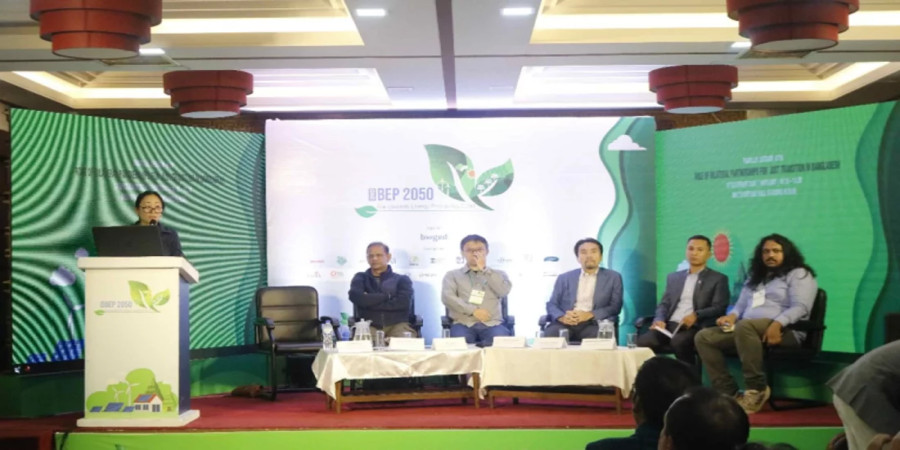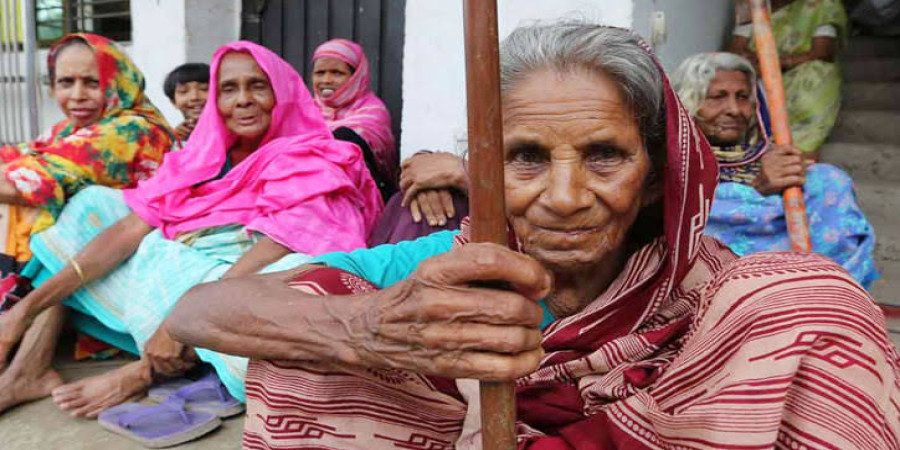
ছবি: Photo: Collected
The Integrated Power and Energy Master Plan (IEPMP) developed for Bangladesh with Japan’s assistance has come under criticism for being economically unviable and incompatible with global climate commitments. Yuki Tanabe, Project Director of the Japan Center for Sustainable Environment and Society (JACSES), stated that the plan primarily serves to maximize profits for Japanese companies rather than supporting Bangladesh’s economic or environmental interests.
Tanabe shared these views during the second day of the three-day "Bangladesh Energy Prosperity 2050 Conference" held in Dhaka on Thursday. According to him, the master plan is designed to facilitate Japan’s surplus LNG sales to Asian countries, with Bangladesh as a key market. He pointed out that the Japan International Cooperation Agency (JICA) has factored this objective into the plan, aligning it with the interests of Japanese corporations.
Criticizing the economic feasibility of the plan, Tanabe said that it includes provisions for 15% ammonia and hydrogen co-firing by 2050, which is projected to cost four times more than renewable energy alternatives. He argued that the plan is unsuitable for a developing economy like Bangladesh, as it recommends untested and expensive technologies under the guise of advanced solutions. These technologies, according to Tanabe, are far less cost-effective than renewable energy options.
He further asserted that the IEPMP needs substantial revisions to align with the economic and environmental realities of Bangladesh. He urged Japan to shift its focus towards investing in renewable energy and supporting Bangladesh in transitioning to sustainable energy systems.
Ichiguchi Tomohide, JICA’s Chief Representative in Bangladesh, also addressed the session and acknowledged the limitations of hydrogen and ammonia technologies at this stage. He noted that while these technologies may be unsuitable for immediate implementation in Bangladesh, future advancements could make them viable. He emphasized the need to revise the master plan periodically to reflect changing economic and technological landscapes.
Tomohide described the IEPMP as a "living document" that should evolve in response to new developments and circumstances. He reiterated JICA’s commitment to supporting Bangladesh in achieving its renewable energy and energy efficiency targets.
During the session titled “The Role of Bilateral Partnerships in Ensuring Just Energy Transition in Bangladesh,” panelists also discussed the strategic importance of investments from China and Nepal in Bangladesh’s energy transition. The session was chaired by Barish Hasan Chowdhury, Asia-Pacific Coordinator of Friends of the Earth, with Makiko Arima, Japan Finance Campaigner of Oil Change International, facilitating the discussions.
The panelists emphasized the critical role of bilateral cooperation in fostering renewable energy initiatives and supporting Bangladesh’s transition to a sustainable energy future. They highlighted the need for international partnerships to prioritize fair and effective solutions that align with global commitments such as the Paris Agreement and the G7 declarations.
Tanabe underscored that Japan’s approach to the master plan undermines Bangladesh’s ability to meet its net-zero targets and is inconsistent with global climate commitments. He suggested that Japan should reconsider its role and shift towards providing technological and financial support for renewable energy projects in Bangladesh.
He also pointed out that the plan’s focus on surplus LNG and untested technologies reflects a profit-driven approach that disregards Bangladesh’s long-term economic and environmental interests. According to Tanabe, such strategies could burden the country with higher energy costs and delay its progress towards energy sustainability.
Tomohide responded by acknowledging these concerns and emphasizing the importance of flexibility in the master plan’s implementation. He assured that JICA remains committed to supporting Bangladesh’s energy goals and will continue to collaborate on initiatives that prioritize renewable energy and energy efficiency.
The discussion shed light on the broader challenges of balancing economic development with environmental sustainability. Experts stressed the need for comprehensive planning and transparent decision-making to ensure that energy policies serve the interests of the people and the environment.
As Bangladesh moves towards achieving its energy goals, the role of international partnerships and bilateral cooperation will be critical. The conference highlighted the importance of aligning energy strategies with global standards and ensuring that policies are both economically and environmentally sustainable.
The session concluded with a call for greater collaboration among stakeholders to address the challenges of energy transition and build a sustainable energy future for Bangladesh. Participants emphasized the need for inclusive and forward-looking policies that prioritize the well-being of the people and the planet.
repoter






